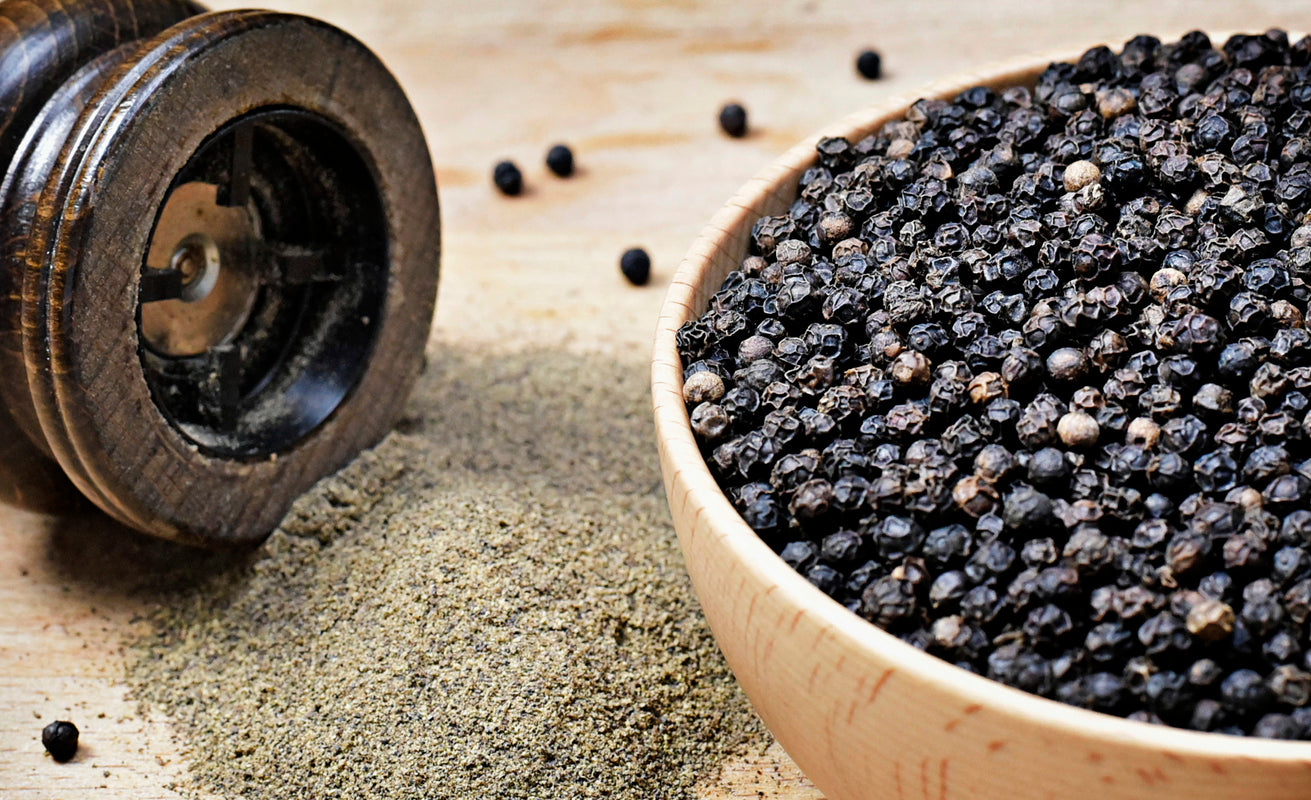The “skinny” spice? Lose excess body weight by adding black pepper to your diet

A shaker filled with black pepper - usually partnered with a saltshaker - is a familiar sight on kitchen tables and countertops across the land. And, although this common seasoning may appear ordinary, its little grains are actually packed with potent bioactive compounds.
This comes as no surprise to practitioners of the Ayurvedic healing system, which has used black pepper for centuries to treat stomach and respiratory ailments.
Black pepper (botanically known as Piper nigrum) is made from ground peppercorns, which are the dried berries of the pepper vine. When you use this everyday spice to add heat and flavor to food, you may actually be availing yourself of some pretty formidable disease-fighting and anti-obesity effects.
New study reveals a "special" substance inside black pepper can promote weight loss
The prevalence of obesity - which raises risk of high blood pressure, type 2 diabetes, nonalcoholic fatty liver disease and heart disease - is between 10 and 15 percent worldwide and is expected to double over the next 20 years. Thanks to one of its active constituents, piperonal, black pepper may have the potential to act as a valuable tool against this unhealthy condition.
For example, a recent animal study published in Nutrition and Metabolism shows that a high-fat diet quickly developed increases in body weight, percentage of fat, fat cell size and insulin resistance, along with lower levels of the “fat -burning hormone” adiponectin. But, six weeks of piperonal added to the diet helped to reduce body weight and percentage of body fat, while improving cholesterol and lipid profiles.
Interestingly enough, piperonal did not decrease appetite but resulted in weight loss anyway. Researchers believe it did so through modulating certain genes that affect fat-burning and weight loss - and praised it as a “potent anti-obesity agent.”
Although the study was an animal study, the team noted that diet-induced obesity in animals shares many features with human obesity. Naturally, researchers are calling for more study on piperonal’s potential for promoting weight loss.
Spice up your diet and create an "anticancer terrain"
Piperine, another major constituent of black pepper, has been found to have anticancer effects. Test tube studies have shown that it slows the replication of breast, prostate and colon cancer cells, while also inducing apoptosis, or cancer cell death.
In one promising study published in Anticancer Research, researchers evaluated the cancer-fighting effects of 55 different compounds derived from various spices. They concluded that piperine from black pepper performed the best when it came to increasing the effectiveness of treatment for triple-negative breast cancer - the most aggressive type.
Of course, it doesn’t hurt that piperine is a potent antioxidant, with cell studies showing it can reduce oxidative stress and damage from free radicals. Oxidative damage is believed to set the stage for cancer, along with other potentially life-threatening diseases. In addition, piperine increased levels of other important antioxidants in the liver, including the disease-fighting and detoxifying enzymes glutathione and superoxide dismutase.
You can QUICKLY have these powerful anti-inflammatory effects
Piperine helps to reduce chronic inflammation, another notorious culprit in the development of heart disease, type 2 diabetes, cancer and arthritis. Specifically, animal studies have shown that piperine can reduce the inflammation and joint swelling of arthritis, while also working to ease asthma and allergies. And, yes, natural pain relief can be another “perk” of consuming black pepper.
By the way, piperine’s anti-inflammatory effects may allow it to improve brain function in neurodegenerative conditions such as Alzheimer’s and Parkinson’s diseases. It has been shown to improve memory while decreasing the formation of amyloid plaques implicated in Alzheimer’s disease.
Can you use pepper to LOWER your salt intake? The answer may surprise you
No doubt, black pepper is a versatile and useful spice that can be used to add “zing” to countless recipes. Poultry, meat, fish, pasta, cooked vegetables and salads can all be enhanced with black pepper, which pairs especially well with turmeric, cumin, garlic, balsamic vinegar, shallots and lemon. Try coating entrees with coarsely ground peppercorns for extra “bite” and crunch.
Another black pepper benefit is that it can increase absorption of other therapeutic herbs and spices, particularly turmeric. Studies have shown that black pepper increases turmeric’s bioavailability by an astonishing 2,000 percent – which is why natural health experts advise combining the two. Black pepper also helps to increase the absorption of beneficial minerals such as calcium and selenium.
Black pepper is such a common kitchen spice that it's often taken for granted. But, savvy food lovers know better than to overlook the contributions to health – and taste – provided by this wonderful seasoning.
Sources for this article include:
-
Posted in
Alzheimer’s disease, black pepper, cancer, obesity, piperine, piperonal






